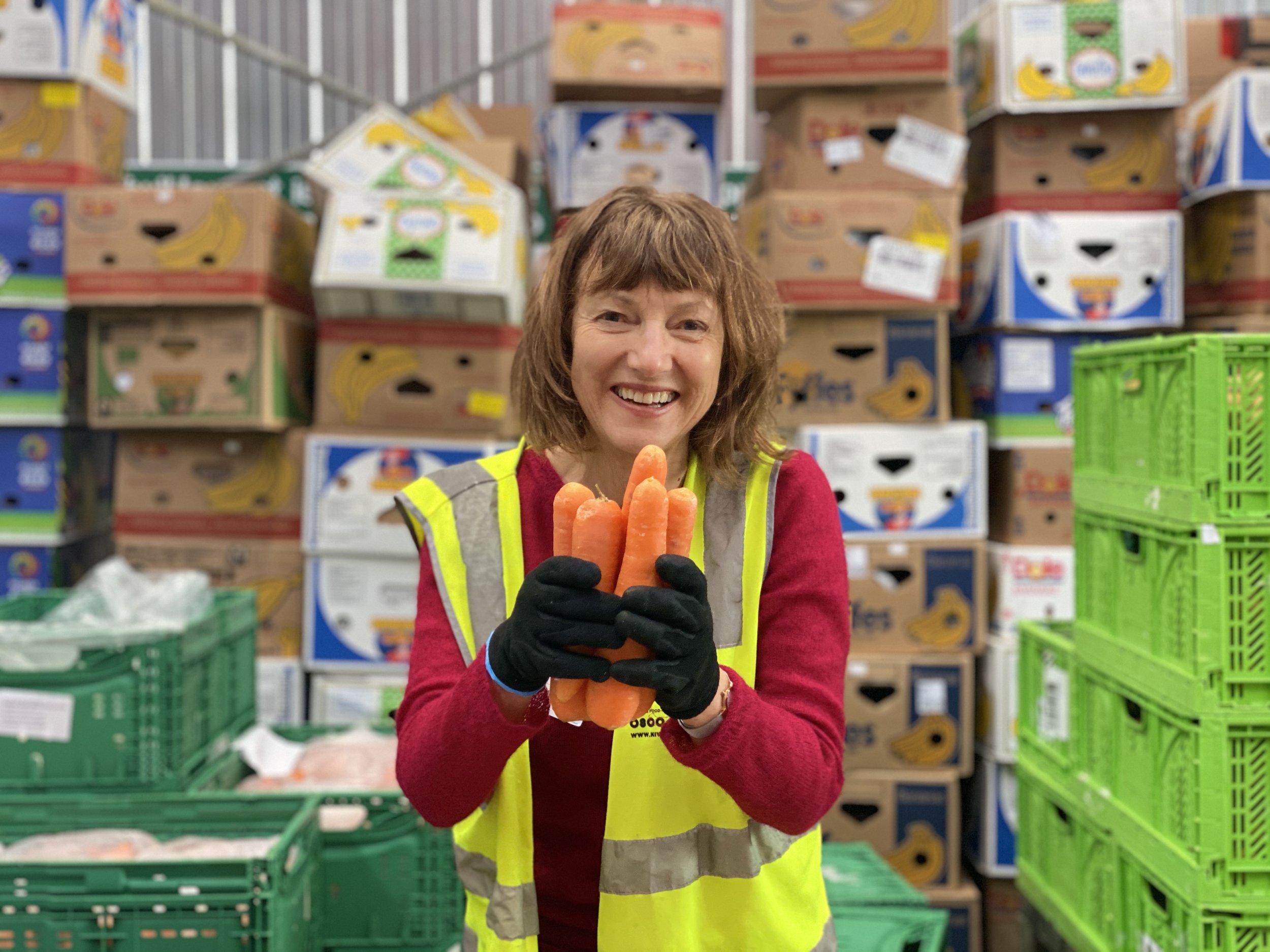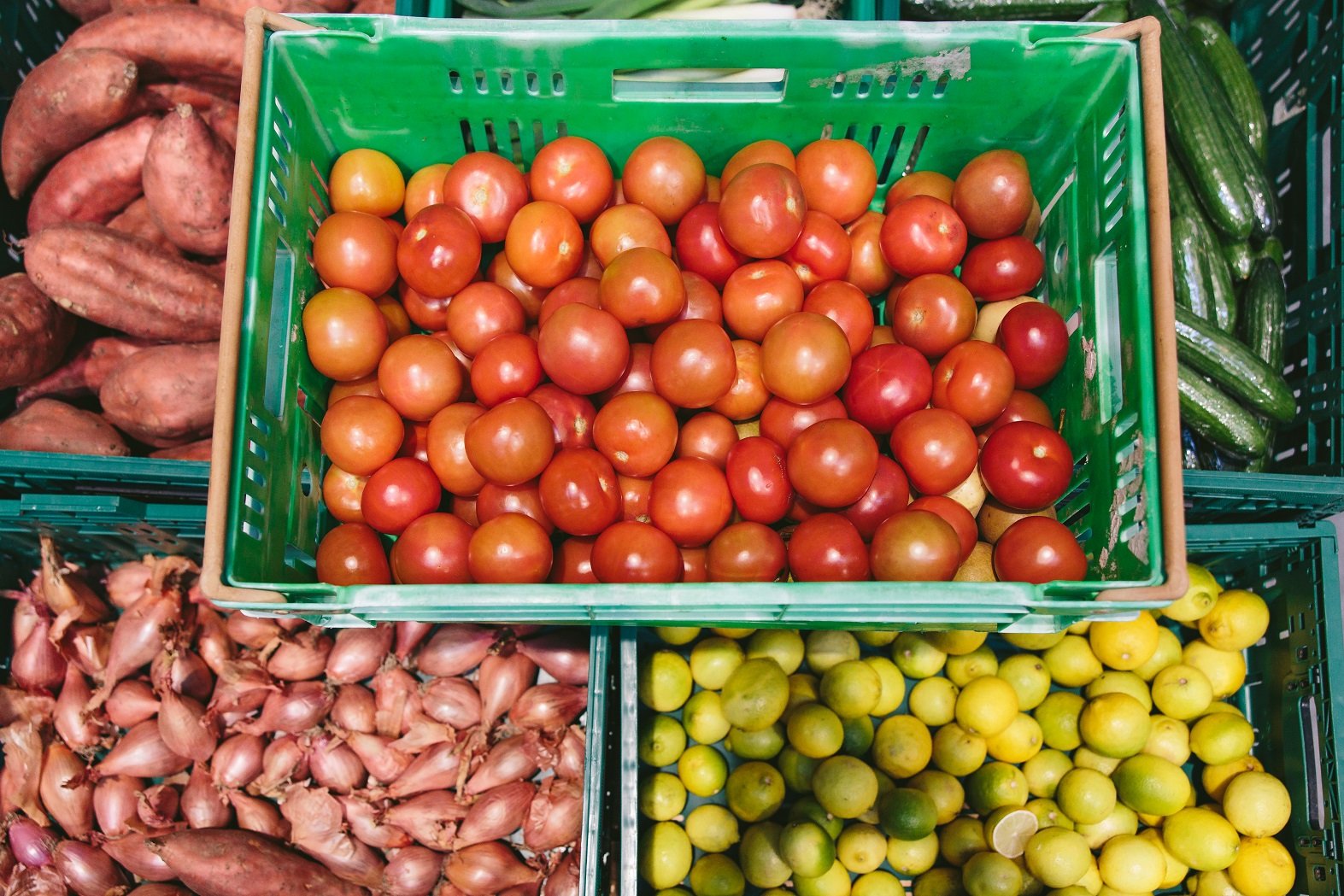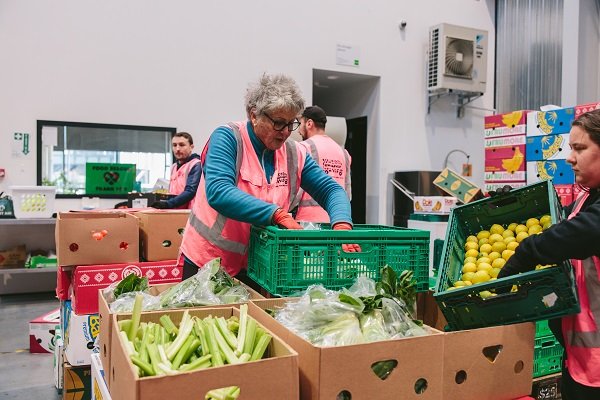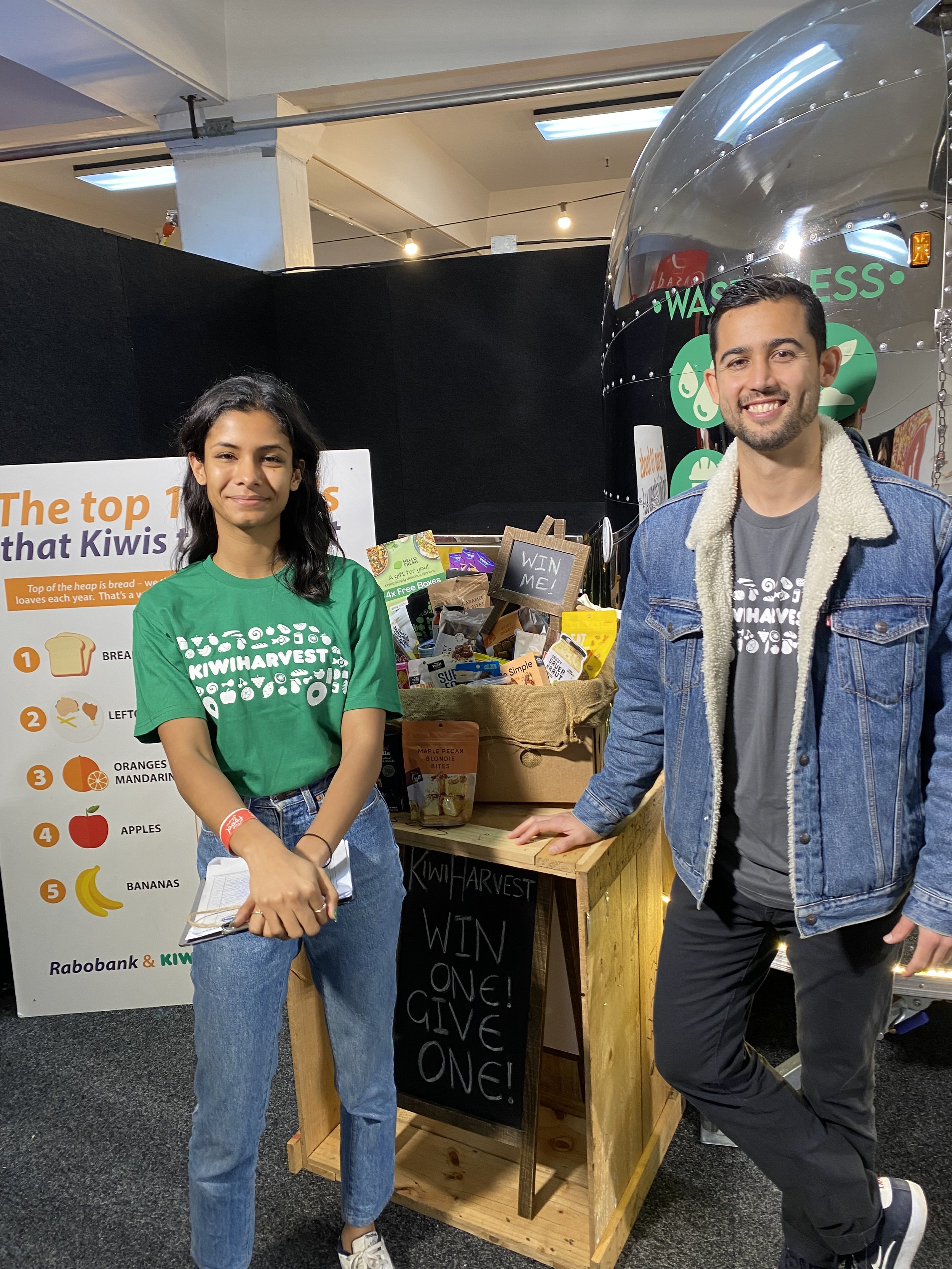HelloFresh
HelloFresh is the world’s leading meal kit company. Their boxes provide everything required for delicious home cooking, with step-by-step recipe cards and fresh produce delivered to your door. Plus, ingredients are pre-portioned to the exact quantities needed, reducing food waste and overbuying. HelloFresh currently operates in 17 countries worldwide and was launched in New Zealand in 2018. Its warehouse in Auckland is affectionately known as the Chilly Bin.
Since our partnership began in 2018, HelloFresh has helped us supply over 2.8 million meals to those in need and provided support to expand our operations and launch our food waste education programme, ‘Whakaako.’
We spoke to Tom Rutledge, Founder & CEO of HelloFresh ANZ about our partnership.
What made you decide to sponsor KiwiHarvest?
The issue of food insecurity intensified during the Covid-19 pandemic, with 2 million people in New Zealand experiencing low to moderate food security. As a major company in the food sector, we feel passionate about helping where we can, which is why we decided to partner with national food rescue charity KiwiHarvest.
What have been some key highlights of this experience so far?
Since our partnership with KiwiHarvest began in 2018, we have had the privilege of helping provide 2,849,137 meals to those in need. Last year, with the help of KiwiHarvest, we were fortunate to help thousands of people in New Zealand who were facing financial hardship by donating $70,000 to launch two new community initiatives.
These initiatives included an expansion programme, ‘Project Ā-Rohe’, which helped bring food bank services to a number of higher deprivation regions nationwide, and an education programme, ‘Whakaako’, which informs people on the impacts of food waste, inspiring them to make small changes to their daily habits.
The expansion of the national network is considered a key step in ensuring food charity recipients are provided with nutritional diversity, which is not always accessible in remote areas.
We’re proud that our partnership with KiwiHarvest has helped them reach more people, rescue more food and support the New Zealand community.
Why is striving for a sustainable business model important to you?
As we grow as a business we see an even greater responsibility to drive sustainable progress on environmental, social, and governance issues regarding our operations, customers, and local communities.
Our mission is to change the way people eat. At the core of our model is a unique and efficient supply chain that inherently reduces food waste, allowing us to develop initiatives and support organisations that combat food insecurity alongside the fulfilment of our product to customers.
As a food business, we also understand the relationship between agriculture and climate change is a two-way street. While the international food system contributes about 25% of global emissions, agriculture is also incredibly dependent on the planet’s vital ecosystem.
In line with this understanding, we are fully aligning our future targets with the objectives set out in the 2015 Paris Climate Agreement — of limiting global warming to a goal of 1.5 degrees Celsius, compared to pre-industrial levels. To achieve this landmark, we have a responsibility to work collectively across all stages of our value chain and reduce negative environmental impacts.
Our partnership with KiwiHarvest allows us not only to help recover excess food from our operations, but also to support programme expansion initiatives that will enable KiwiHarvest to rescue more food across New Zealand Aotearoa.
What challenges has partnering with KiwiHarvest helped you to address?
At HelloFresh we take food waste seriously, and while our business model is inherently geared towards lower levels of food waste, we constantly look for ways we can further reduce this loss.
In 2020 HelloFresh set a global target to reduce the amount of food waste sent to landfill from all of our facilities by 50% (by the end of 2022 from a 2019 baseline). This means we are actively working to ensure all excess food from our production gets donated first to food rescue charities, and only food that is not safe to eat is diverted to compost. Meeting this target would not be possible without the support of our fantastic food rescue partners around the world, including KiwiHarvest.





